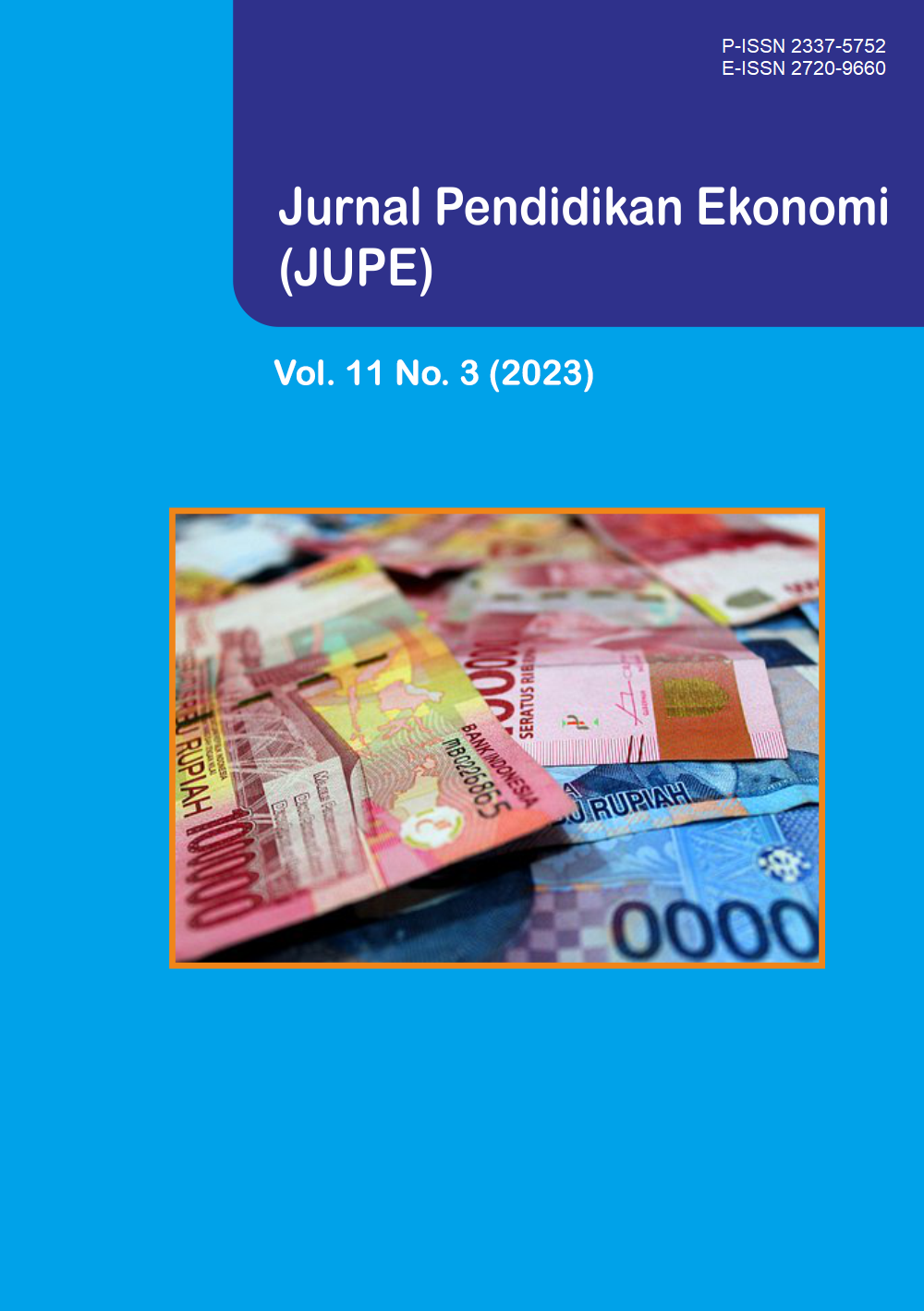Pengaruh Efikasi Diri dan Adversity Quotient Terhadap Prestasi Akademik Mahasiswa Pendidikan Ekonomi FKIP UNS Angkatan 2019-2021
DOI:
https://doi.org/10.26740/jupe.v11n3.p281-287Keywords:
self-efficacy, adversity quotient, academic achievementDownloads
Download data is not yet available.
Downloads
Published
2023-09-04
How to Cite
Mawarni, W. D., Sangka, K. B., & Setyowibowo, F. (2023). Pengaruh Efikasi Diri dan Adversity Quotient Terhadap Prestasi Akademik Mahasiswa Pendidikan Ekonomi FKIP UNS Angkatan 2019-2021. Jurnal Pendidikan Ekonomi (JUPE), 11(3), 281–287. https://doi.org/10.26740/jupe.v11n3.p281-287
Issue
Section
Articles
License
Copyright
- Authors retain copyright and grant the journal right of first publication with the work simultaneously licensed under a Creative Commons Attribution License that allows others to share the work with an acknowledgment of the work's authorship and initial publication in this journal.
 Abstract views: 188
,
Abstract views: 188
, PDF Downloads: 229
PDF Downloads: 229











